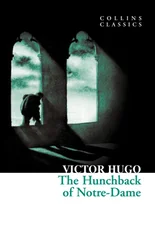Victor Hugo - The Man Who Laughs
Здесь есть возможность читать онлайн «Victor Hugo - The Man Who Laughs» — ознакомительный отрывок электронной книги совершенно бесплатно, а после прочтения отрывка купить полную версию. В некоторых случаях можно слушать аудио, скачать через торрент в формате fb2 и присутствует краткое содержание. Жанр: literature_19, foreign_antique, foreign_prose, на английском языке. Описание произведения, (предисловие) а так же отзывы посетителей доступны на портале библиотеки ЛибКат.
- Название:The Man Who Laughs
- Автор:
- Жанр:
- Год:неизвестен
- ISBN:нет данных
- Рейтинг книги:3 / 5. Голосов: 1
-
Избранное:Добавить в избранное
- Отзывы:
-
Ваша оценка:
- 60
- 1
- 2
- 3
- 4
- 5
The Man Who Laughs: краткое содержание, описание и аннотация
Предлагаем к чтению аннотацию, описание, краткое содержание или предисловие (зависит от того, что написал сам автор книги «The Man Who Laughs»). Если вы не нашли необходимую информацию о книге — напишите в комментариях, мы постараемся отыскать её.
The Man Who Laughs — читать онлайн ознакомительный отрывок
Ниже представлен текст книги, разбитый по страницам. Система сохранения места последней прочитанной страницы, позволяет с удобством читать онлайн бесплатно книгу «The Man Who Laughs», без необходимости каждый раз заново искать на чём Вы остановились. Поставьте закладку, и сможете в любой момент перейти на страницу, на которой закончили чтение.
Интервал:
Закладка:
"A blue cloud is worse than a black cloud," said the doctor; "and," he added, "it's a snow-cloud."
"La nube de la nieve," said the skipper, as if trying to understand the word better by translating it.
"Do you know what a snow-cloud is?" asked the doctor.
"No."
"You'll know by-and-by."
The skipper again turned his attention to the horizon.
Continuing to observe the cloud, he muttered between his teeth, —
"One month of squalls, another of wet; January with its gales, February with its rains – that's all the winter we Asturians get. Our rain even is warm. We've no snow but on the mountains. Ay, ay; look out for the avalanche. The avalanche is no respecter of persons. The avalanche is a brute."
"And the waterspout is a monster," said the doctor, adding, after a pause, "Here it comes." He continued, "Several winds are getting up together – a strong wind from the west, and a gentle wind from the east."
"That last is a deceitful one," said the skipper.
The blue cloud was growing larger.
"If the snow," said the doctor, "is appalling when it slips down the mountain, think what it is when it falls from the Pole!"
His eye was glassy. The cloud seemed to spread over his face and simultaneously over the horizon. He continued, in musing tones, —
"Every minute the fatal hour draws nearer. The will of Heaven is about to be manifested."
The skipper asked himself again this question, – "Is he a madman?"
"Skipper," began the doctor, without taking his eyes off the cloud, "have you often crossed the Channel?"
"This is the first time."
The doctor, who was absorbed by the blue cloud, and who, as a sponge can take up but a definite quantity of water, had but a definite measure of anxiety, displayed no more emotion at this answer of the skipper than was expressed by a slight shrug of his shoulders.
"How is that?"
"Master Doctor, my usual cruise is to Ireland. I sail from Fontarabia to Black Harbour or to the Achill Islands. I go sometimes to Braich-y-Pwll, a point on the Welsh coast. But I always steer outside the Scilly Islands. I do not know this sea at all."
"That's serious. Woe to him who is inexperienced on the ocean! One ought to be familiar with the Channel – the Channel is the Sphinx. Look out for shoals."
"We are in twenty-five fathoms here."
"We ought to get into fifty-five fathoms to the west, and avoid even twenty fathoms to the east."
"We'll sound as we get on."
"The Channel is not an ordinary sea. The water rises fifty feet with the spring tides, and twenty-five with neap tides. Here we are in slack water. I thought you looked scared."
"We'll sound to-night."
"To sound you must heave to, and that you cannot do."
"Why not?"
"On account of the wind."
"We'll try."
"The squall is close on us."
"We'll sound, Master Doctor."
"You could not even bring to."
"Trust in God."
"Take care what you say. Pronounce not lightly the awful name."
"I will sound, I tell you."
"Be sensible; you will have a gale of wind presently."
"I say that I will try for soundings."
"The resistance of the water will prevent the lead from sinking, and the line will break. Ah! so this is your first time in these waters?"
"The first time."
"Very well; in that case listen, skipper."
The tone of the word "listen" was so commanding that the skipper made an obeisance.
"Master Doctor, I am all attention."
"Port your helm, and haul up on the starboard tack."
"What do you mean?"
"Steer your course to the west."
"Caramba!"
"Steer your course to the west."
"Impossible."
"As you will. What I tell you is for the others' sake. As for myself, I am indifferent."
"But, Master Doctor, steer west?"
"Yes, skipper."
"The wind will be dead ahead."
"Yes, skipper."
"She'll pitch like the devil."
"Moderate your language. Yes, skipper."
"The vessel would be in irons."
"Yes, skipper."
"That means very likely the mast will go."
"Possibly."
"Do you wish me to steer west?"
"Yes."
"I cannot."
"In that case settle your reckoning with the sea."
"The wind ought to change."
"It will not change all night."
"Why not?"
"Because it is a wind twelve hundred leagues in length."
"Make headway against such a wind! Impossible."
"To the west, I tell you."
"I'll try, but in spite of everything she will fall off."
"That's the danger."
"The wind sets us to the east."
"Don't go to the east."
"Why not?"
"Skipper, do you know what is for us the word of death?"
"No."
"Death is the east."
"I'll steer west."
This time the doctor, having turned right round, looked the skipper full in the face, and with his eyes resting on him, as though to implant the idea in his head, pronounced slowly, syllable by syllable, these words, —
"If to-night out at sea we hear the sound of a bell, the ship is lost."
The skipper pondered in amaze.
"What do you mean?"
The doctor did not answer. His countenance, expressive for a moment, was now reserved. His eyes became vacuous. He did not appear to hear the skipper's wondering question. He was now attending to his own monologue. His lips let fall, as if mechanically, in a low murmuring tone, these words, —
"The time has come for sullied souls to purify themselves."
The skipper made that expressive grimace which raises the chin towards the nose.
"He is more madman than sage," he growled, and moved off.
Nevertheless he steered west.
But the wind and the sea were rising.
CHAPTER V.
HARDQUANONNE
The mist was deformed by all sorts of inequalities, bulging out at once on every point of the horizon, as if invisible mouths were busy puffing out the bags of wind. The formation of the clouds was becoming ominous. In the west, as in the east, the sky's depths were now invaded by the blue cloud: it advanced in the teeth of the wind. These contradictions are part of the wind's vagaries.
The sea, which a moment before wore scales, now wore a skin – such is the nature of that dragon. It was no longer a crocodile: it was a boa. The skin, lead-coloured and dirty, looked thick, and was crossed by heavy wrinkles. Here and there, on its surface, bubbles of surge, like pustules, gathered and then burst. The foam was like a leprosy. It was at this moment that the hooker, still seen from afar by the child, lighted her signal.
A quarter of an hour elapsed.
The skipper looked for the doctor: he was no longer on deck. Directly the skipper had left him, the doctor had stooped his somewhat ungainly form under the hood, and had entered the cabin; there he had sat down near the stove, on a block. He had taken a shagreen ink-bottle and a cordwain pocket-book from his pocket; he had extracted from his pocket-book a parchment folded four times, old, stained, and yellow; he had opened the sheet, taken a pen out of his ink-case, placed the pocket-book flat on his knee, and the parchment on the pocket-book; and by the rays of the lantern, which was lighting the cook, he set to writing on the back of the parchment. The roll of the waves inconvenienced him. He wrote thus for some time.
As he wrote, the doctor remarked the gourd of aguardiente, which the Provençal tasted every time he added a grain of pimento to the puchero, as if he were consulting it in reference to the seasoning. The doctor noticed the gourd, not because it was a bottle of brandy, but because of a name which was plaited in the wickerwork with red rushes on a background of white. There was light enough in the cabin to permit of his reading the name.
The doctor paused, and spelled it in a low voice, —
Читать дальшеИнтервал:
Закладка:
Похожие книги на «The Man Who Laughs»
Представляем Вашему вниманию похожие книги на «The Man Who Laughs» списком для выбора. Мы отобрали схожую по названию и смыслу литературу в надежде предоставить читателям больше вариантов отыскать новые, интересные, ещё непрочитанные произведения.
Обсуждение, отзывы о книге «The Man Who Laughs» и просто собственные мнения читателей. Оставьте ваши комментарии, напишите, что Вы думаете о произведении, его смысле или главных героях. Укажите что конкретно понравилось, а что нет, и почему Вы так считаете.












